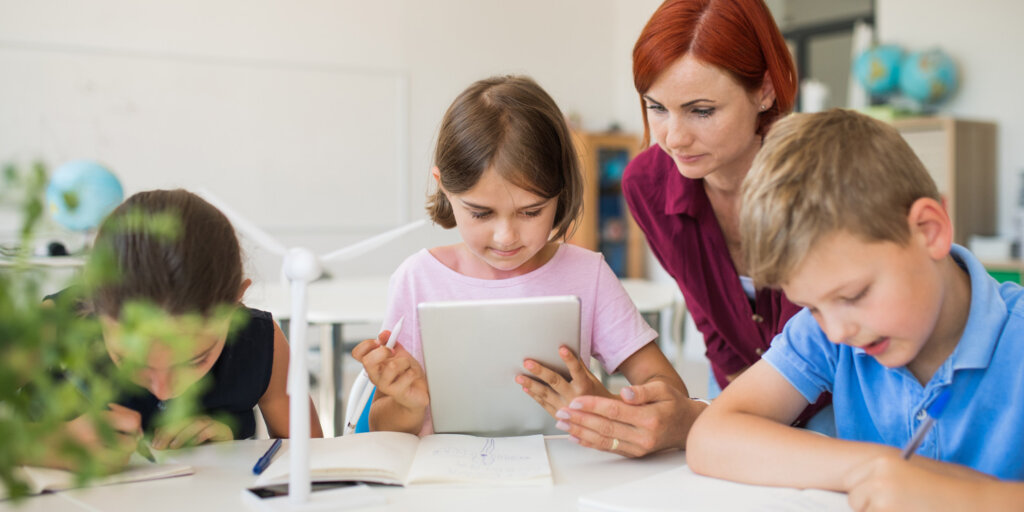Home » Enhancing Public Education through Intelligent Innovation
Enhancing Public Education through Intelligent Innovation

As the 2024/25 school year commences, Canadian schools grapple with resource limitations and various challenges, particularly regarding technology in the classroom. New provincial cellphone bans and a class-action lawsuit against social media companies such as Meta and TikTok reflect growing concerns among parents, educators, and policy makers about the adverse effects of digital tools on children. Annie Kidder from People for Education suggests that while banning devices may seem simpler, it overlooks the potential benefits technology can bring to education.
The current state of public education in Ontario, exacerbated by past government cuts, reveals a system in decline. Increased class sizes, reduced funding, and budget cuts have left schools struggling to maintain quality education. The Toronto District School Board's per-student funding has declined by $1,110 in inflation-adjusted terms since five years ago, and overall worker wages have dropped nearly 11% over the past decade. Teacher shortages in over a quarter of Ontario schools exacerbate the issue, leading to unqualified individuals filling positions.
To address these issues, it is imperative to explore innovative technological solutions. Ontario's Greater Toronto Area houses over 2,000 startups, with around 75 dedicated to education technology. Kidder argues that public education must evolve alongside technological advancements rather than revert to device restrictions. Collaborating with private companies could spark novel solutions to improve classroom experiences.
Another pressing concern is indoor air quality, which significantly affects students' learning capabilities. Poor air quality can lead to respiratory issues and impact cognitive functions such as concentration and memory. Recommendations for improved ventilation systems have occasionally faltered due to schools' existing infrastructure not supporting advanced air filters—a problem highlighted by Aeden Fida, co-founder of Blade Air. While the Toronto District School Board invested in standalone HEPA filters, efficacy suffered from a lack of proper implementation and maintenance.
Emerging technologies like Blade Air's Pro Filters offer promising alternatives by capturing ultra-fine particles without straining existing HVAC systems. The installation of these filters is poised to reduce operational costs significantly, presenting a budget-friendly solution for schools.
As schools confront a significant learning deficit inflicted during COVID-19 closures, engaging students effectively has become increasingly complicated. For instance, Prodigy Education’s game-based learning platform motivates students with interactive quests aligned with the curriculum, making learning more engaging. However, leaders emphasize that technology should augment, not replace traditional teaching methods.
Moreover, students with special education needs face their own challenges in accessing adequate resources. A report indicates that only 27% of grade 9 students with special education needs met provincial reading standards. Systemic issues surrounding class sizes and adequate support hinder progress for these students. Innovations like gamified learning platforms from companies like Orange Neurosciences provide targeted support for neurodiverse students but face obstacles in navigating the bureaucratic landscape of Ontario's education system.
The lack of standardized protocols for evaluating new digital tools hampers the adoption of effective technology in classrooms. Establishing guidelines to differentiate between beneficial technology and ineffective options could enhance educational outcomes significantly. Kidder calls for a revival of government-led evaluations akin to past practices for textbooks to ensure informed choices are made, which could ultimately modernize and improve Ontario's educational landscape.
MaRS Discovery District
https://www.marsdd.com/
MaRS is the world's largest urban innovation hub in Toronto that supports startups in the health, cleantech, fintech, and enterprise sectors. When MaRS opened in 2005 this concept of urban innovation was an untested theory. Today, it’s reshaping cities around the world. MaRS has been at the forefront of a wave of change that extends from Melbourne to Amsterdam and runs through San Francisco, London, Medellín, Los Angeles, Paris and New York. These global cities are now striving to create what we have in Toronto: a dense innovation district that co-locates universities, startups, corporates and investors. In this increasingly competitive landscape, scale matters more than ever – the best talent is attracted to the brightest innovation hotspots.


